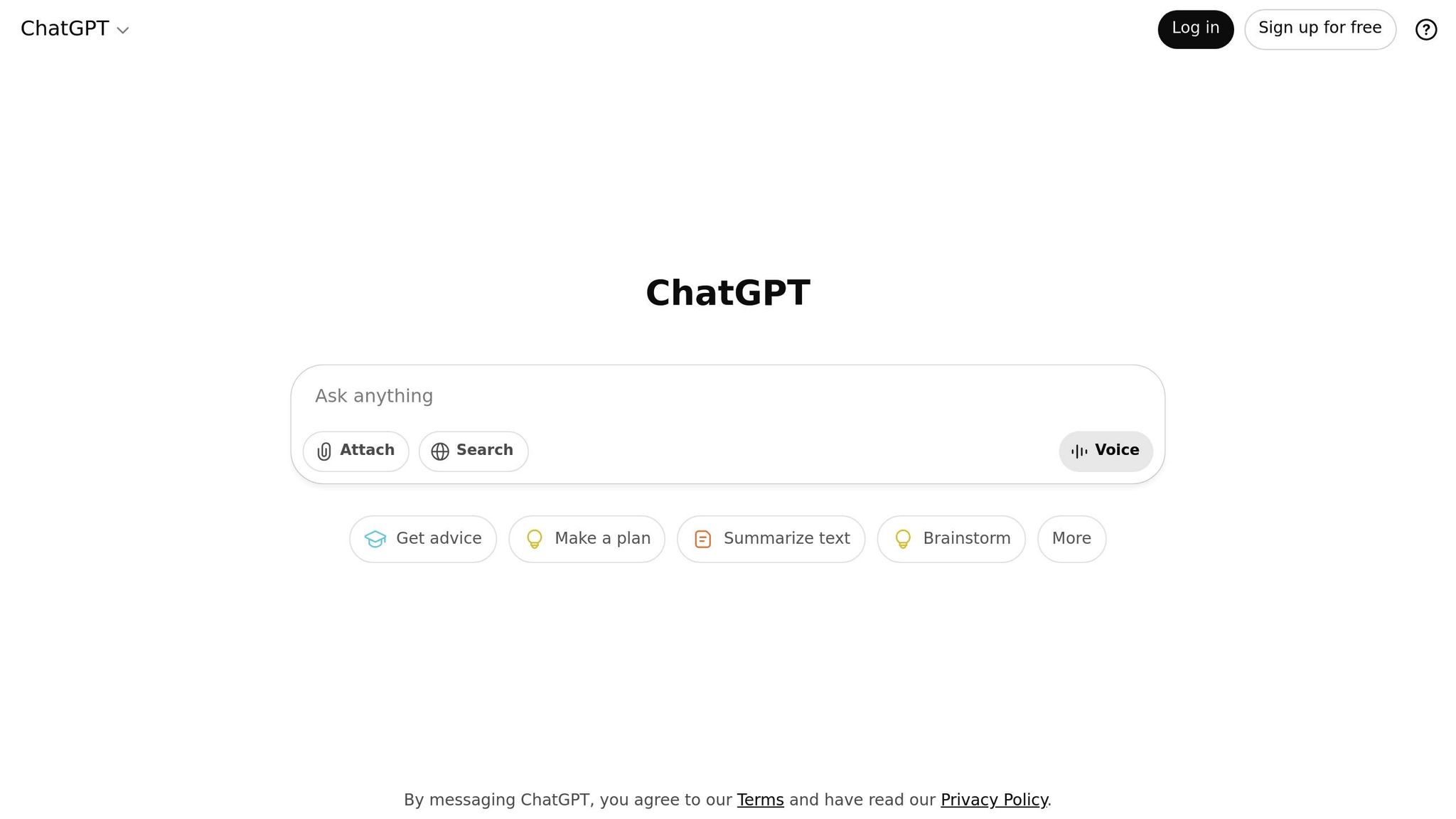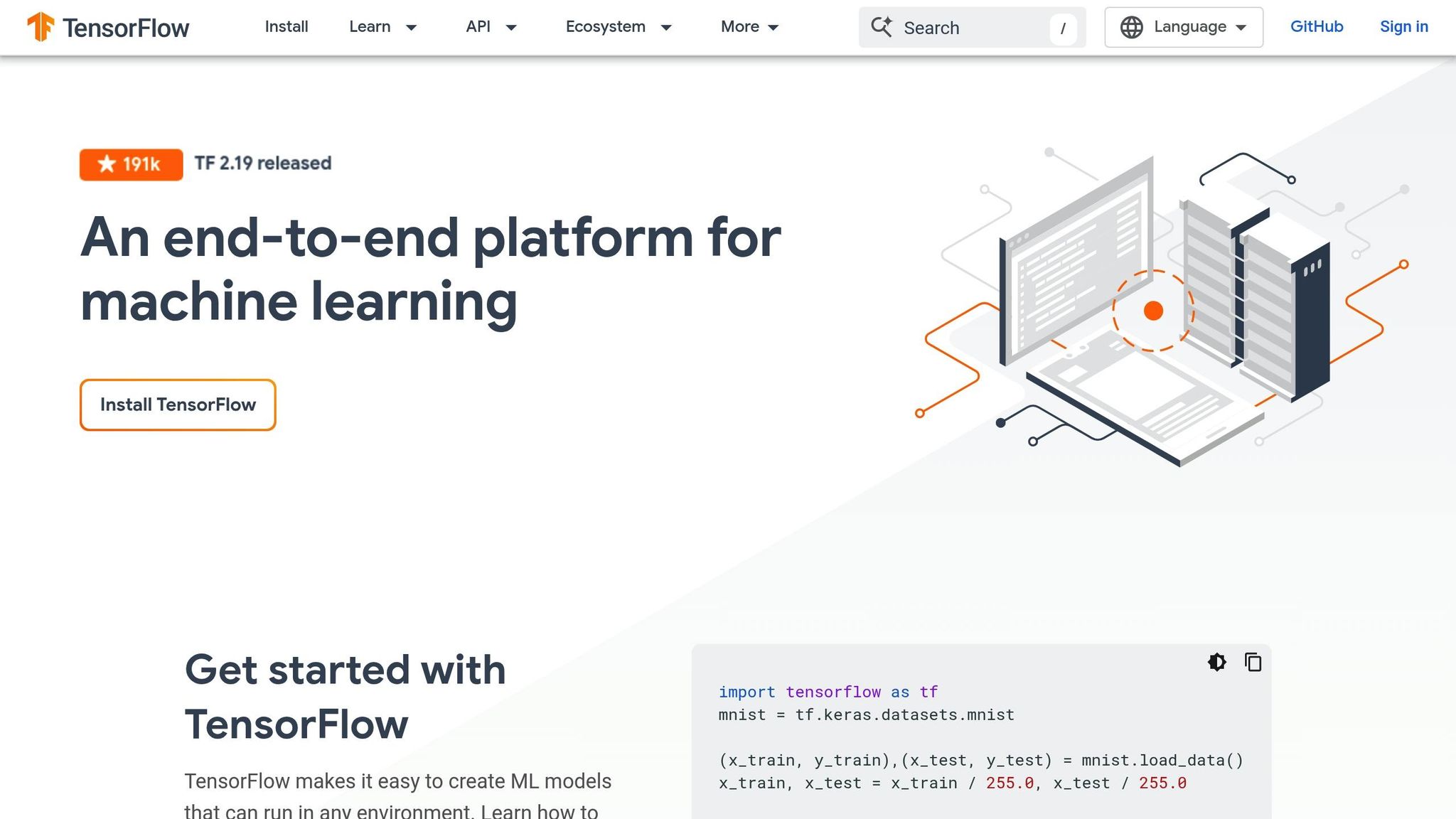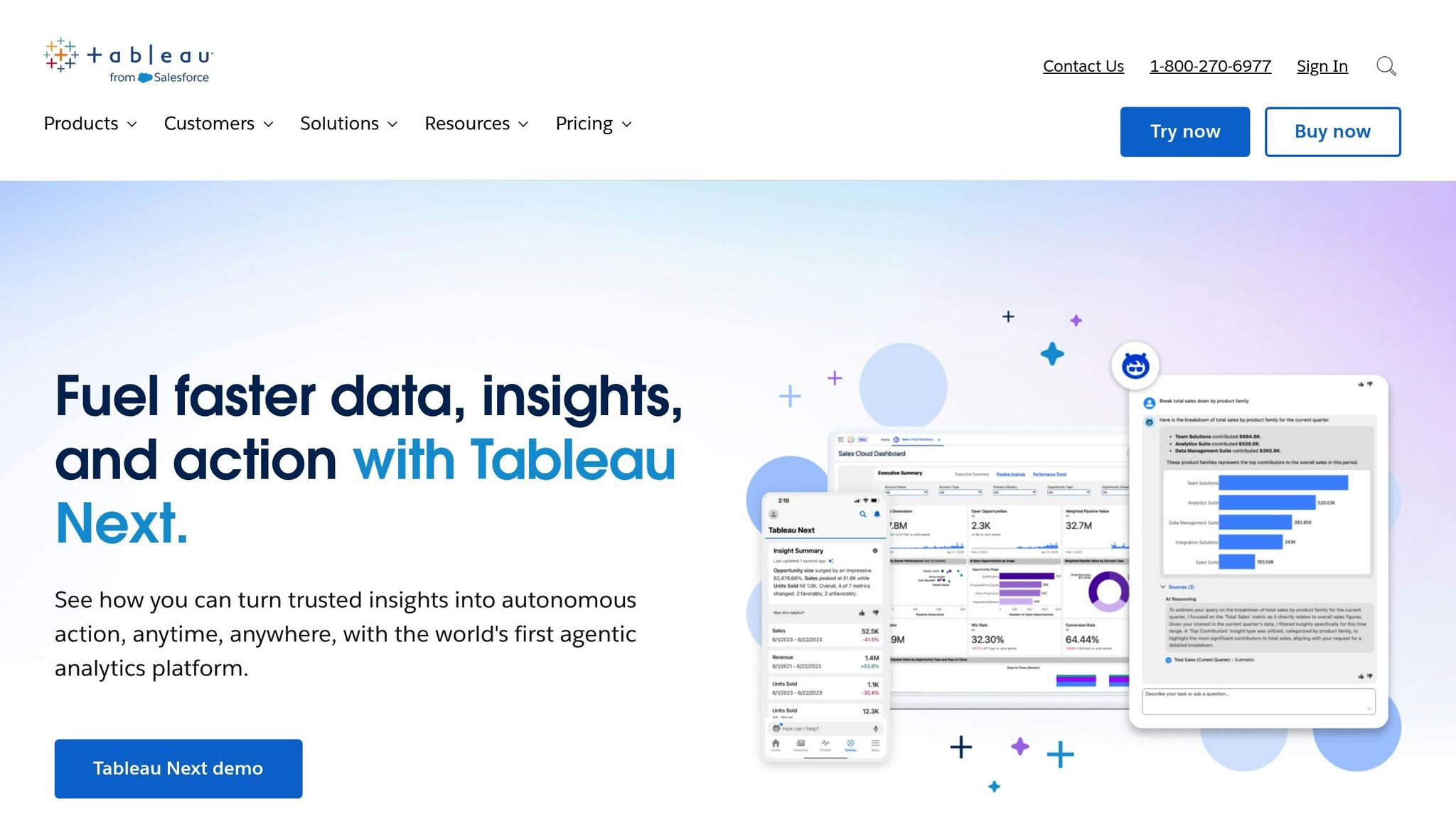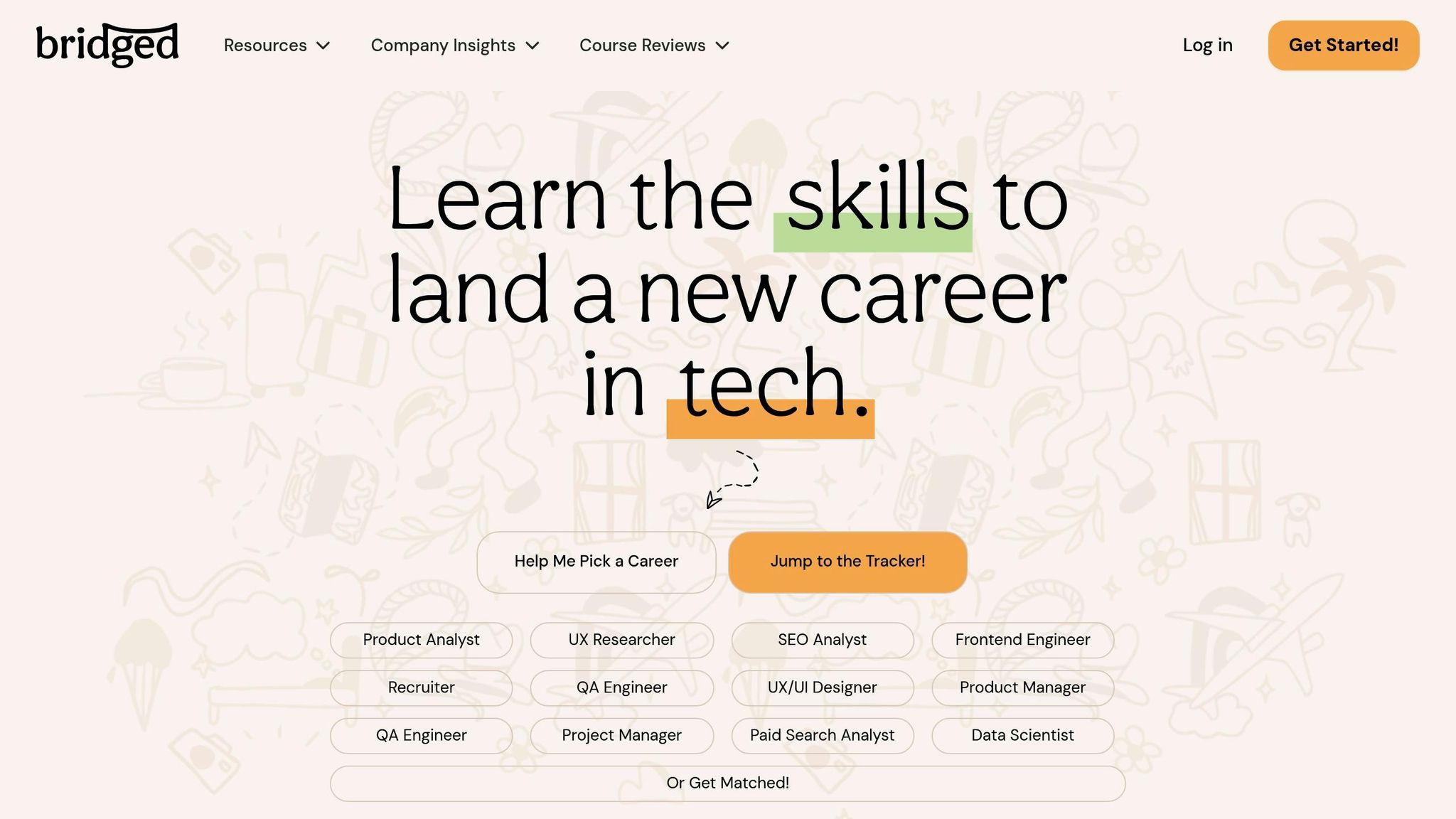Introduction
AI skills are in high demand, and spending just a weekend learning them can boost your career prospects and earning potential. By mastering tools like ChatGPT, TensorFlow, and Tableau, or diving into Python scripting and prompt engineering, you can enhance your resume with practical, job-relevant skills. Here’s why it’s worth your time:
- AI demand is surging: Mentions of AI in U.S. job postings rose by 56.1% in 2025, with roles like AI Engineers and Prompt Engineers growing rapidly.
- Higher salaries: Jobs requiring AI skills pay 28% more, on average, than similar roles.
- Beginner-friendly tools: Platforms like ChatGPT (content automation), TensorFlow (AI models), and Tableau (data visualization) are easy to pick up quickly.
- Immediate application: Employers value what you can do with AI tools over formal credentials.
Start with beginner-friendly courses like The Elements of AI or Google’s AI Essentials. Use tools like Bridged to identify skill gaps and align your learning with career goals. By Monday, you can have new skills that set you apart in today’s competitive job market.
Every Essential AI Skill in 25 Minutes (2025)
Basic AI Concepts for Beginners
Understanding the basics of AI is the first step to learning how to apply it in practical ways.
Core AI Concepts Made Simple
At its heart, Artificial Intelligence (AI) revolves around creating machines that can think, learn, and act to tackle complex challenges.
Machine Learning (ML) is a key part of AI, where machines learn from data rather than being explicitly programmed. ML algorithms analyze data, spot patterns, and make decisions independently. For example, these algorithms power recommendation engines on streaming platforms and help detect fraud in banking.
An algorithm is essentially a set of rules or instructions that guide a computer in learning and decision-making processes.
Machine learning itself is divided into three main categories:
- Supervised Learning: Algorithms are trained on labeled data, where inputs are paired with their correct outputs.
- Unsupervised Learning: Algorithms work with unlabeled data, identifying patterns and insights without predefined answers.
- Reinforcement Learning: Algorithms learn by interacting with their environment, improving through rewards and penalties.
Deep Learning takes machine learning a step further by using neural networks with multiple layers. This enables systems to recognize intricate patterns, making it possible for technologies like image recognition, virtual assistants, and language translation to function.
Two additional areas worth noting are Natural Language Processing (NLP), which helps machines understand and generate human language, and Computer Vision, which allows systems to interpret and analyze visual data.
Finally, a crucial element in AI development is ensuring fairness by addressing biases in data and algorithms.
Quick Resources for Learning the Basics
If you're new to AI, there are plenty of beginner-friendly courses available online - many of them free and accessible without requiring advanced math or programming skills.
One standout option is The Elements of AI course, which has attracted over 1 million learners from more than 170 countries. Impressively, about 40% of participants are women, showcasing its broad appeal.
Another great resource is Google AI Essentials, which offers hands-on projects, real-world examples, and completion badges that look great on a resume. Many learners have found it transformative.
"I feel much more confident in my ability to leverage generative AI tools effectively and responsibly. The hands-on activities and real-world examples were particularly helpful in solidifying my understanding."
– Susan B., Google Prompting Essentials graduate
Microsoft’s AI Learning Hub is another excellent choice, featuring curated learning plans and activities designed to build your skills step by step.
To make the most of your learning time, consider creating a clear timeline with specific goals. This structured approach can help you focus on essential concepts that employers value. With 79% of workers believing AI skills will expand their job opportunities and a 21x increase in job postings mentioning AI technologies, developing these skills can open doors to immediate career growth.
AI Tools and Platforms You Can Learn Quickly
If you’re looking to expand your skill set in AI, there are several tools you can pick up in no time. These platforms are user-friendly and perfect for beginners who want to build on basic AI knowledge. Here are a few practical tools you can familiarize yourself with over a weekend.
ChatGPT for Automation and Content Creation

ChatGPT has quickly become a favorite for automating everyday tasks and creating content. The best part? You can get the hang of it in just a few hours. Start by signing up for a free OpenAI account at chat.com and experimenting with prompts.
ChatGPT is incredibly versatile. You can use it to brainstorm ideas, summarize lengthy documents, draft emails, create content outlines, repurpose material, or even write full project proposals. With 85.1% of users already leveraging AI for blogging and article writing, learning this tool is a smart move.
In October 2024, Asase showcased how powerful ChatGPT can be by designing a content creation system. Their setup included SEO keyword analysis, idea generation tailored to business goals, and producing both long-form blog posts and short-form social media content. By integrating with Zapier, they automated the entire workflow - from content creation to scheduling posts on LinkedIn, Instagram, Facebook, Twitter, and Medium - all timed for optimal engagement.
To maximize ChatGPT’s potential, provide clear instructions. For instance, specify outlines, preferred writing styles, or word counts. You can even use prompts like “in the style of” to align ChatGPT’s output with your brand’s voice. It’s also crucial to fact-check and refine the generated content to ensure accuracy and consistency.
"ChatGPT simplifies tasks, but you shouldn't simply copy and paste straight from the source. Edit AI responses to align with your brand's voice." - Stephanie Love
While ChatGPT is great for streamlining tasks, TensorFlow opens the door to testing simple AI models.
TensorFlow Basics for Model Testing

TensorFlow is another tool you can dive into over a weekend. This software library is designed for machine learning and AI, focusing on training and inference of neural networks.
At its core, TensorFlow revolves around tensors - multidimensional arrays that underpin all operations. These tensors have two key attributes: shape and dtype, which define how data is structured and processed. TensorFlow performs mathematical operations on these tensors and can utilize GPUs for faster computations.
Big names are already using TensorFlow to solve real-world problems. For instance, GE Healthcare employs it to enhance MRI accuracy and speed, Twitter uses it to rank tweets by relevance, and Naver Shopping leverages it to auto-classify millions of new products daily.
If you’re new to TensorFlow, it’s a good idea to start with simpler tools like pandas and scikit-learn before diving in. Focus on hands-on projects instead of getting bogged down in theory. With TensorFlow being used by over 1,910 companies and holding a 3.56% market share, it’s a skill that can make your resume stand out.
Tableau for AI-Powered Data Visualization

Tableau has taken data visualization to the next level by incorporating AI features that simplify and enhance the process. The platform provides smart visualization suggestions, highlights key trends in your data, and ensures data security and privacy.
One standout feature is Tableau Agent, which helps users explore data, create visualizations, and build calculated fields. This feature is currently available in Tableau Cloud (version 2024.2) and will roll out to Tableau Desktop in version 2025.1.
But Tableau doesn’t stop at basic visualizations. Its enhanced Q&A functionality identifies grouped metrics, surfaces key insights, and even suggests follow-up questions. Meanwhile, Tableau Catalog auto-generates descriptions for data sources, workbooks, and tables, making it easier to understand and organize your data.
With features like Pulse insight, Enhanced Q&A, and Tableau Agent, Tableau streamlines the process of turning raw data into actionable insights. These skills are valuable across industries, making Tableau a great investment for anyone looking to boost their resume over a weekend.
sbb-itb-8dc0621
AI Skills to Add to Your Resume After a Weekend
A weekend spent diving into AI can equip you with practical skills that employers are actively seeking. With 97% of organizations reaping benefits from AI technologies and 79% planning for generative AI to drive major changes, showcasing these abilities could make your resume stand out.
Highlight tangible AI accomplishments that deliver measurable results. Focus on areas like Python scripting, prompt engineering, and data analytics to turn your weekend projects into skills that resonate with hiring managers.
Python Scripting for AI Tasks
Employers are drawn to candidates who can demonstrate technical projects that solve problems or improve efficiency. Python scripting is an accessible entry point into AI, and in just a couple of days, you can create projects that showcase your ability to use code to address real-world challenges.
For instance, you could build a to-do list app, a weather tracker, or a web scraper. These projects illustrate your grasp of user interface design, API integration, data handling, and the fundamentals of programming logic. These are all foundational skills for AI-related roles.
When listing these projects on your resume, be specific about your contributions and results. For example: "Developed a machine learning model using Python and scikit-learn to predict customer churn, reducing attrition rates by 25%". Even if your weekend project is smaller in scope, this type of phrasing connects your technical work to meaningful business outcomes.
Prompt Engineering for AI Tools
Prompt engineering is rapidly becoming a sought-after skill, and it’s something you can get a handle on over a weekend. This involves crafting inputs that maximize the effectiveness of AI tools, directly influencing business results.
Spend time practicing how to assign roles, specify output formats, and refine prompts through iterations. The better your prompts, the more accurate and useful the AI-generated outputs will be. This skill demonstrates to employers that you can collaborate effectively with AI tools to achieve specific goals.
Document your experiments in a portfolio, detailing the prompts you developed and the reasoning behind them. On your resume, you might describe this experience as: "Collaborated with Marketing to optimize prospecting email campaigns, increasing open rates by 35% using A/B testing, ChatGPT, and Outreach".
"If you see AI-related terms in a job description (like 'generative AI' or 'prompt engineering'), align your skills by connecting existing experience or quickly learning those tools", advises Jeremy Schifeling, Founder of The Job Insiders.
AI-Powered Data Analysis and Visualization
Weekend projects in AI-powered data analysis can yield impressive portfolio pieces, showcasing your ability to extract actionable insights from complex datasets - something employers value highly.
Consider building tools like an AI-powered resume screener, a caption generator, or a visualization of market trends. Using Python libraries such as spaCy, OpenAI API, NLTK, or ggplot, you can demonstrate expertise in natural language processing, computer vision, and data visualization.
Quantify your results when presenting these projects on your resume. For example: "Developed a natural language processing pipeline using NLTK and spaCy to analyze customer feedback, leading to product improvements that boosted satisfaction scores by 15%".
With 47% of U.S. executives believing generative AI can significantly improve productivity, these skills show employers that you’re ready to contribute to their goals from the start.
Using Bridged for Career Pathways and Skill Gap Analysis

Learning AI tools over a weekend is a great starting point, but the next step is figuring out how these skills fit into your career goals. While mastering AI basics is an accomplishment, the real task is identifying which skills align with your professional ambitions and spotting the gaps that could slow you down. This is especially important in today’s job market, where over half of all employees will need significant re-skilling or upskilling by 2025.
That’s where Bridged comes in. This platform takes the guesswork out of career planning by offering tools that connect your strengths to the demands of high-paying, AI-driven roles. Whether you’re working on prompt engineering or diving into TensorFlow, Bridged provides data-backed insights to guide your next steps.
Career Path Exploration with Bridged
Bridged’s Skill Tracker is designed to help you uncover your current strengths and match them to roles that pay well. This allows you to focus your energy on areas that matter most. It also provides insights into career paths that align with your abilities, helping you decide whether to direct your learning efforts toward fields like data analysis, automation, or machine learning.
The platform’s gap identifier is particularly useful - it breaks down your career goals into actionable learning objectives. It highlights the exact skills you need to work on and offers tailored recommendations to help you achieve them. By stacking micro-certifications, you can build a portfolio of focused credentials that align with your career strategy, turning a weekend of skill-building into a clear, long-term plan.
Affordable Upskilling with Bridged Resources
Bridged also makes upskilling more accessible by identifying budget-friendly certifications that enhance your resume without straining your wallet. Using a database of over 30,000 skills, the platform scans courses, tags relevant skills, and creates detailed profiles for various roles. Whether your focus is on Python scripting, AI-powered data analysis, or prompt engineering, Bridged helps you pinpoint the resources that will make the biggest impact.
Additionally, Bridged partners with top companies and factors in your preferences to ensure your skill development aligns with market demands. This targeted approach transforms weekend projects into stepping stones for long-term career growth, making your efforts both efficient and meaningful. By using Bridged, you can turn casual learning into a strategic investment in your professional future.
Conclusion: Start Building AI Skills This Weekend
Now that we’ve covered the tools and skills you can develop, it’s time to turn knowledge into action. The upcoming weekend isn’t just a break - it’s a chance to invest in your future. With 47% of hiring managers identifying AI proficiency as the most sought-after skill in candidates, there’s no better time to start your AI learning journey. Whether it’s diving into Python scripting, mastering prompt engineering, or getting familiar with TensorFlow, these skills can turn your resume into a standout.
The numbers speak for themselves. Entry-level Python developers can earn between $96,000 and $105,000, according to Randstad’s 2025 salary guide. And with the Bureau of Labor Statistics forecasting a 36% growth in data science jobs through 2033, the demand for AI-related skills is only growing.
What makes weekend learning so effective is its immediacy. Unlike degree programs that take years to complete, the AI skills we’ve discussed can be added to your resume by Monday. From automating tasks with ChatGPT to creating data visualizations with Tableau, these tools offer immediate value that employers across industries are eager to see.
To stay competitive, it’s essential to align your learning with market demands. As Gen Z candidates are expected to make up 27% of the workforce by 2025, the pressure to upskill is increasing. And with 43% of employees still lacking AI training from their employers, taking the initiative to learn on your own gives you a significant edge.
Platforms like Bridged can help you connect these new skills to real career opportunities. Instead of learning in isolation, you can use Bridged to identify which AI competencies align with your goals and salary expectations. This focused approach ensures your weekend efforts pay off in the long run.
FAQs
What are the best ways to quickly learn AI skills over a weekend?
If you want to dive into AI over the weekend, start with beginner-friendly courses and tools that emphasize hands-on learning. For instance, Fast.ai’s deep learning tutorials or Andrew Ng’s AI For Everyone on Coursera are excellent choices for grasping the basics, even if you have no prior experience.
You can also explore platforms like Kaggle Learn and DeepLearning.ai, which offer short, focused lessons that take just a few hours to complete. These resources cover essential topics like Python for AI, automation, and popular machine learning frameworks such as TensorFlow. Once you've completed these courses, you can add your newfound skills to your resume, showcasing your AI knowledge and enhancing your career opportunities.
What’s the best way to showcase new AI skills on my resume to impress employers?
When adding your new AI skills to your resume, focus on real achievements and practical projects. For instance, you could highlight automating tasks with ChatGPT, creating basic models using TensorFlow, or completing a micro-course like Python for AI. Be sure to include measurable outcomes, such as boosting efficiency or saving time, to show the tangible impact of your work.
Also, mention any certifications or training programs you've completed. Listing tools and platforms you've mastered - like AI APIs, Python, or machine learning frameworks - can give employers a clear picture of your technical expertise and your proactive approach to learning and applying these skills in real-world situations.
What are some beginner-friendly projects to apply AI tools like ChatGPT, TensorFlow, and Tableau in real-world scenarios?
If you're eager to dive into AI tools like ChatGPT, TensorFlow, and Tableau, here are a few beginner-friendly project ideas to get you started:
- ChatGPT: Develop a simple chatbot that can handle customer support inquiries or assist with personal tasks like automating FAQs or setting up reminders. It's a great way to explore natural language processing in action.
- TensorFlow: Try building a basic image classifier or a recommendation system. These projects will help you grasp the fundamentals of neural networks and machine learning, giving you hands-on experience with this powerful tool.
- Tableau: Take AI-generated data and turn it into meaningful visualizations. For instance, you could analyze stock market trends or create dashboards to track sales performance, making data easy to interpret and actionable.
These beginner projects not only make AI tools accessible but also give you the chance to apply them to practical challenges. Plus, they’re perfect for building a portfolio that showcases your growing skills in AI.









